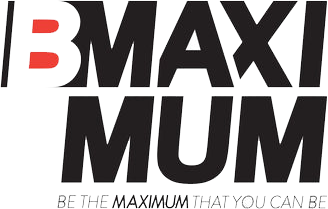
Creatine is one of the most popular and misunderstood supplements in the fitness world. While it's widely used by fitness enthusiasts and bodybuilders to enhance performance and muscle growth, there are numerous myths surrounding its use. Let’s dispel the top 5 myths about creatine to give you a clearer picture of what it really does and its benefits.
1. Myth: Creatine is Like an Anabolic Steroid
The misconception that creatine is akin to anabolic steroids couldn't be further from the truth. Unlike steroids, creatine is not a synthetic drug but a compound derived from amino acids, naturally found in your body and in foods like meat and fish. It plays a critical role in energy production, particularly in muscle cells, by increasing the body's production of adenosine triphosphate (ATP), enhancing workout performance.
2. Myth: You Can Build Muscle Mass With Creatine Without Exercising
This myth likely stems from studies showing creatine's strength-improvement effects in individuals with muscular dystrophy. However, for healthy individuals, the combination of creatine supplementation and resistance training is essential to see significant muscle development. Creatine alone won’t magically build muscle without the effort.
3. Myth: Creatine Causes Excess Water Retention
Many believe that creatine supplementation leads to unwanted water retention, affecting muscle definition. Yet, the majority of creatine is stored within muscles, making it unlikely to cause subcutaneous water accumulation. The misconception might arise from using low-quality creatine products, which may contain excess sodium.
4. Myth: Muscle Gains Disappear After Stopping Creatine
It’s common to believe that any muscle gain attributed to creatine will vanish upon cessation. While muscle size might slightly decrease, maintaining a regimen of proper nutrition and resistance training will help preserve muscle strength and mass over time.
5. Myth: There’s No Need for Creatine Supplements If You Eat the Right Foods
Indeed, creatine is present in various foods. However, the quantities in food are much lower than what can be achieved through supplementation. To match the creatine levels from supplements, one would have to consume an impractical amount of these foods daily.
Bonus Myths Busted!
Creatine is Only for Male Athletes
Creatine benefits are not gender-specific. It’s equally effective and suitable for female athletes, offering the same potential for performance enhancement and muscle growth.
Creatine Requires a Loading Phase
While a loading phase can speed up the saturation of muscles with creatine, it’s not mandatory. Consistent daily intake can achieve similar results without the need for initial high dosages.
Creatine is Harmful to the Kidneys
There’s no substantial evidence linking creatine supplementation to kidney damage in healthy individuals. While creatine can increase creatinine levels, an indicator of kidney function, it doesn’t imply kidney harm. However, those with pre-existing kidney issues should exercise caution.
Conclusion
Creatine is a well-researched supplement that offers numerous benefits, particularly in the realms of strength training and physical performance. Dispelling these myths is crucial to understanding and maximizing its potential benefits safely. Always consult with a healthcare provider before starting any new supplement regimen, especially if you have existing health conditions.







